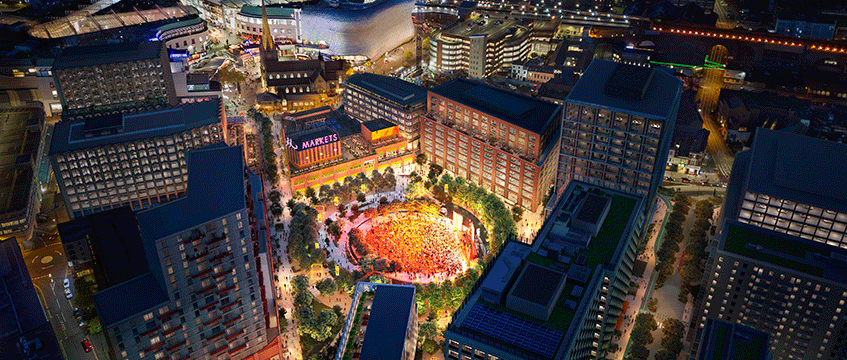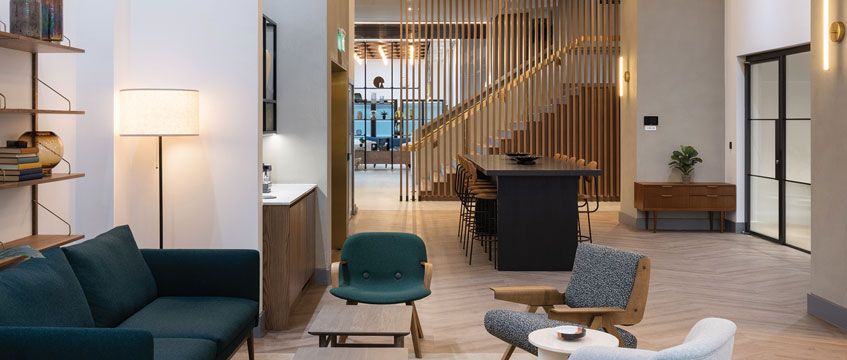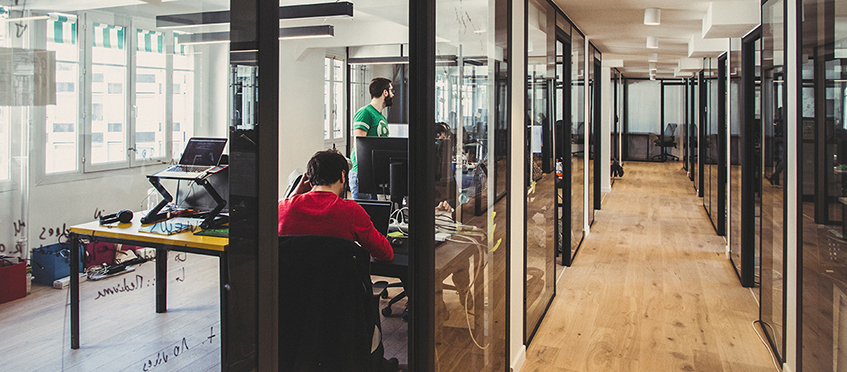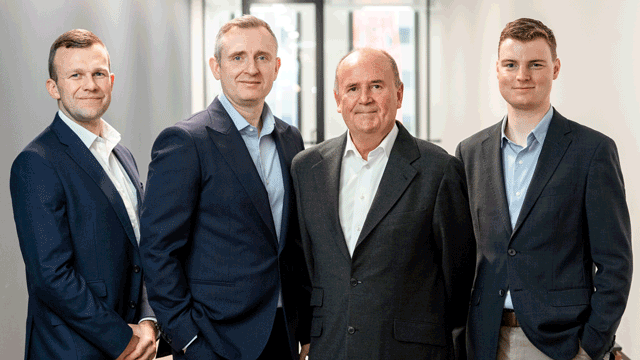Mikael Benfredj is founder of Patchwork, a furniture-store-turned-co-working-space in the heart of Paris. When people started to use his display furniture as makeshift workspaces, he embraced the demand for a change of use and now has plans to expand.
How did Patchwork come about?
I had actually decided not to launch a start-up. I wanted to work with real stuff and sell real stuff, which is why I went into the family business in design and furniture.

We opened shops in Paris, selling things you can touch and feel. We started to use the space to allow architects to gather and, from there, something evolved without us even thinking about it.
The store started to become a place where people gathered, but also worked and networked. And soon it had basically become a co-working space that was no longer just for architects.
People can still buy the furniture, so the space is basically a live showroom.
We saw the WeWork explosion and decided we would launch our own brand, Patchwork. We now provide agile space for people to come and work, meet or grow their businesses.
Do you think the introduction of flexible work spaces like Patchwork will make Paris – and France – a less rigid place to do property deals in terms of lease length?
In Paris we see a lot of real estate agents selling a lease called bail. When you sign this you usually have to commit to three, six or nine years. That’s a very big commitment.
Now, because of the revolution that the start-up scene is fuelling, it is much more difficult to sign up to those. And we are starting to see those same agents saying: ‘Listen, we would like to propose a short-term lease’, so things are already changing.
What about the future of the office as a concept? What do you think it will look like in 10 years’ time?
I don’t think that companies will be separated the way they are today. There might not be one dedicated building for a single company – or even dedicated floors.
I hope large companies will want to expand their values and culture more profoundly around their partners and clients. Design will be sunnier – meaning it should have more space available outside – and smarter, meaning more automation.
What will we see more of? And what will we see less of?
We will see more integrated services such as childcare facilities, laundries, hairdressers, banks and post offices, plus more regulation – things like lighting, chair comfort and screen hours will all be monitored. And I think offices will be more disability-friendly, too. And there will be less personalisation of your specific spot or desk.
How will changing offices affect the way we use our homes?
Work will be more invasive – even more than it is today – thanks to frictionless technology and the ability to work anywhere.
I think ‘workspace’ will become a ‘meeting space’.
How has your experience of watching a furniture store evolve into a co-working space shaped your view on the way people want to work?
Considering we didn’t do it on purpose, it was very inspiring to watch the transformation in a short period of time.
I remember the days when one or two people would come into the store to work. It was very calm. Today it’s like a factory. There are 40 to 50 people every day.











